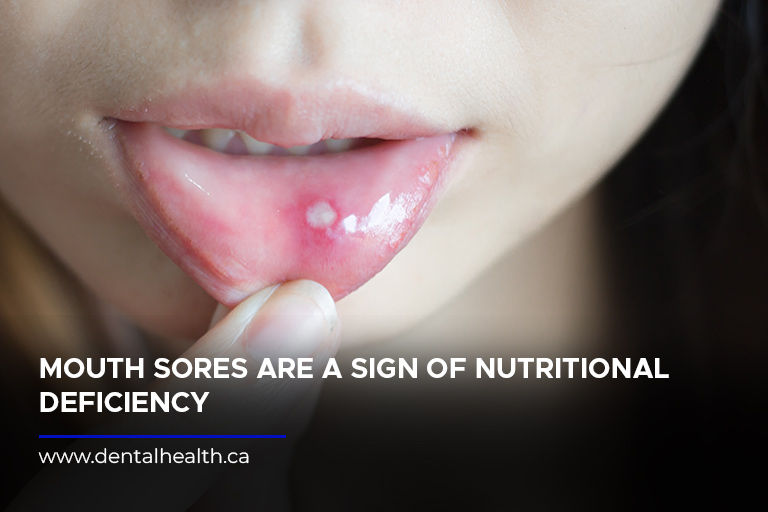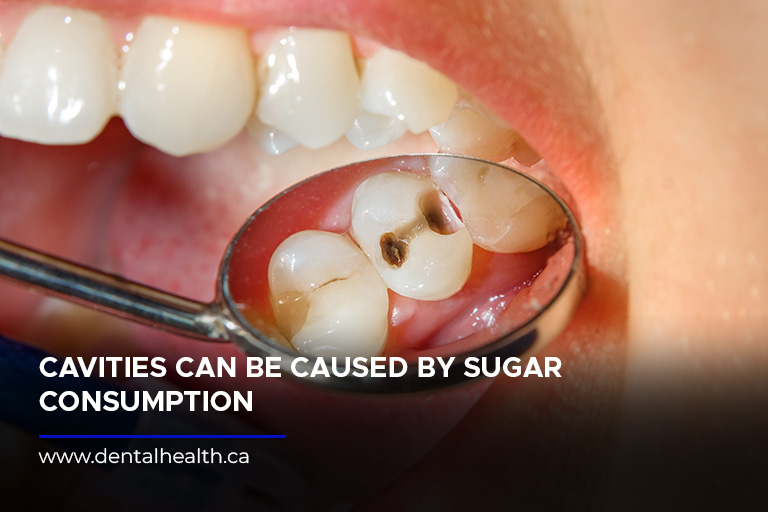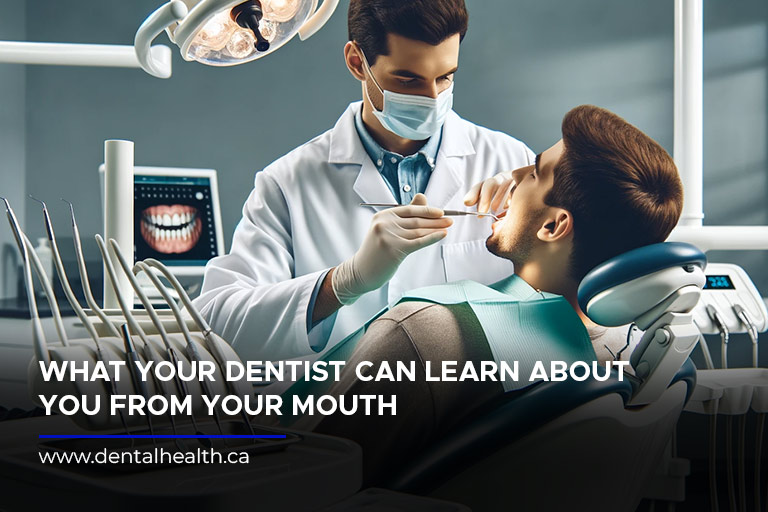You might have visited the dentist for the routine dental check-up or teeth cleaning that is typically expected. However, what many people might not realize is that your mouth provides more information about you than you might realize. Some dentists describe the mouth as a gateway to the body, and indeed, beyond addressing concerns like cavities and plaque, a dental visit can reveal insights into your overall health and habits. A routine examination by your dentist might even unveil signs of underlying diseases.
The next time your dentist says, “Open your mouth!” here are things they can learn about you.
- Eating Disorders
It is common for dentists to inquire about the possibility of an eating disorder. Conditions like bulimia manifest a specific type of dental damage, characterized by noticeable wear and tear on the tongue side of the front teeth and indications of heightened cavity occurrence. Additionally, the odour of your breath during the breakdown of fats and proteins can serve as a distinct indicator of an underlying eating disorder. Your dentist may address these signs to encourage further examination and necessary support.
- Nutritional Deficiencies

Inadequate levels of vital vitamins and minerals can result in different mouth problems, including heightened susceptibility to infections, or bleeding gums. Notably, an iron deficit may be identified by the presence of severe sores in the corners of the mouth and on the tongue. Similarly, Vitamin C deficiency may be signalled by bleeding gums and the lack of tartar. This suggests a potential insufficient intake of fruits and vegetables. Dentists are well-equipped to offer guidance on maintaining an oral health-friendly, well-rounded diet.
- Possible Pregnancy
An elevation in progesterone levels during pregnancy fosters bacterial growth, leading to the onset of gingivitis. Almost 40% of women will encounter pregnancy gingivitis, with some potentially developing a pregnancy tumour or pyogenic granuloma, presenting as a red lump on the gums.
Additionally, heightened progesterone sensitivity in gum tissue increases reactivity to plaque, making it common for pregnant women to experience gum-related issues. Studies even hint at a potential link between gum disease and instances of premature and low-weight births.
- Nail Biting
Your dentist can detect your nail-biting habit without inspecting your hands. Indications manifest in teeth displaying chipping, cracking, and stress-induced wear. Nail biters typically exhibit flat, levelled front teeth, with the damage stemming not from the nails themselves but from the contact between the upper and lower teeth. The visible effects on your teeth provide a clear indication of the persistent impact of nail-biting, beyond the superficial examination of your hands.
- Thumb-Sucking
Thumb-sucking past the age of 7 can leave lasting effects on your bite and teeth positioning. Dentists can identify indications such as protruding front teeth, influencing the growth of a child’s jaws and potentially affecting speech development. The good news is that these issues are amendable through orthodontic interventions.
- Stress
Stress manifests in dental health, often leading to unconscious teeth grinding or clenching. The consequences include chipped and worn-down teeth, and over time, stress-induced bruxism may result in detectable bone loss visible in X-rays. Misaligned upper and lower teeth serve as an additional indicator that stress relief measures are needed.
- Heavy Drinker
Our mouths naturally produce saliva, which acts to counteract the acidic substances that can harm our teeth. Alcohol has a drying effect on the mouth, putting individuals who consume alcohol at an elevated risk of cavities. This heightened risk is exacerbated by visible signs such as “chipmunk red cheeks” and the distinctive odour of alcohol on the breath, serving as unmistakable indicators of potential oral health issues associated with alcohol consumption.
- Sweet Tooth

Weak teeth may result from consistent consumption of sugary beverages. This includes energy drinks, more acidic than traditional sodas, posing a heightened risk to tooth enamel. Mouth doctors advise on the collective impact of such choices, emphasizing the need for moderation and mindful consumption for long-term dental health.
- Underlying Conditions
Typically, unpleasant breath is categorized as halitosis, but dentists can identify more than simply bad breath. They investigate whether the odour originates from your teeth or gums. If not dental in origin, dentists may suggest consulting another medical professional to explore potential underlying issues.
The scent emanating from your teeth carries significant information. A “fruity” aroma may signal elevated blood sugar or diabetic ketoacidosis, a diabetes complication. On the other hand, an ammonia-like odour could indicate a potential kidney condition.
What diseases can be identified by dentists?
Dentists possess the ability to recognize indicators of your general well-being. Oral issues may be linked to conditions like diabetes, heart disease, kidney ailments, specific cancer types, and more. They often serve as the first line of detection for symptoms, promptly referring you to a primary care physician for further evaluation.
Can dentists detect oral cancer?
Dentists can identify potential signs of oral cancer, typically manifesting as red or white lesions on the mouth’s floor, palate, or tongue. Following such observations, they recommend consulting an oral surgeon or a medical professional for a biopsy.
Is it possible for a dentist to identify the presence of a sexually transmitted disease?
Various STDs exhibit diverse symptoms, with prevalent indications such as throat soreness, swollen glands, and the appearance of white spots in the mouth. For instance, HIV/AIDS may manifest oral symptoms like oral warts, fever blisters, or oral thrush, making it plausible for a dentist to observe signs suggestive of certain sexually transmitted infections during an oral examination.
Schedule an Appointment
Comprehensive dental care extends beyond just focusing on your teeth and gums, emphasizing the importance of regular dental check-ups.
For a reliable dental clinic and experienced dentist in Beamsville, consider visiting Kingsway Family Dentistry. Our team provides exceptional oral care. Feel confident in your choice of dental care by calling (905) 563-4001 to schedule an appointment with us today.

